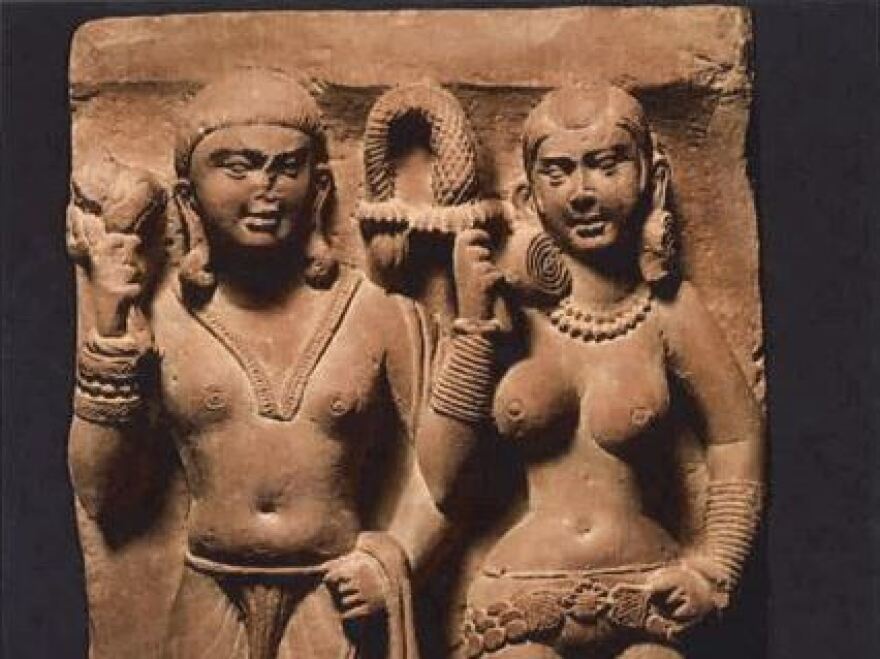A New York art dealer has been arrested and charged with possessing and selling stolen artifacts from countries throughout Asia.
Nancy Wiener is accused of using her gallery in New York City, called Nancy Wiener Gallery, to "buy, smuggle, launder and sell millions of dollars' worth of antiquities stolen from Afghanistan, Cambodia, China, India, Pakistan, and Thailand," according to a complaint filed in Manhattan Criminal Court.
According to the gallery's website, it has sold art to private collectors and museums, including the Metropolitan Museum of Art, Los Angeles County Museum, Art Institute of Chicago and National Gallery of Australia.

Jason Felch, an investigative reporter who writes about the trafficking of stolen art, described Wiener's business as "one of the country's most prestigious Asian art galleries on Manhattan's Upper East Side," on his blog Chasing Aphrodite.
The 12-page complaint, which is signed by Special Agent Brenton Easter of the Department of Homeland Security, reads less like a court filing than an art heist thriller.
It tells of an elaborate scheme, carried out with co-conspirators around the world, to buy stolen artifacts and then cover up their origin to make hundreds of thousands of dollars selling them.
Take, for example, the story of an Indian sandstone sculpture from around the second century, referred to as "Seated Buddha #1."
In 1999, Wiener allegedly sold the sculpture to Singapore's Asian Civilisations Museum. When, years later, the museum asked for documents about the sculpture's origin, Wiener gave them three answers: First, she said it had belonged to "an unnamed European collector for at least 35 to 40 years," then she said her own father had acquired it in India, and finally she gave the name of a man she said bought it when "he was posted in Vietnam between 1964 and 1966."
The name she gave was Ian Donaldson, a fact that later became relevant to investigators.
None of the three claims about the statue's origin appeared to be true. Investigators searching a storage locker rented by another art dealer found an "unlabeled computer disc." On it were three pictures of Seated Buddha #1. In one of them, the statue appeared "still wet as it lay on a dirty floor."
The date stamp on the picture appears to be Nov. 8, 1992.

Meanwhile, Wiener acquired a second Buddha statue. She sold that one, referred to as "Seated Buddha #2," to the National Gallery of Australia in 2007 for more than $1 million, saying that it had originally been purchased in Hong Kong by a man who "had been posted there between 1964 and 1966."
The man's name was also Ian Donaldson.
India's patrimony laws, which spells out the right of the country to retain its artifacts, took effect in 1972, according to the complaint.

The complaint also describes methods Wiener appeared to have used to create the false air of legitimacy around possibly stolen artifacts she and her family owned.
For example, the state alleges Wiener attempted to consign a collection of 380 artifacts owned by her mother, Doris Wiener, to the auction house Sotheby's but didn't have adequate documentation about their origin. So she consigned the collection to Christie's New York instead.
According to the complaint, Doris Wiener had previously consigned some of the artifacts and re-bought them at auction — so-called straw purchases meant to launder their purchase history by adding apparent owners.
Christie's did not ask for extensive documentation about where the Wieners acquired the art and sold the entire lot in 2012 for $12.7 million.
The New York Times reported some of the artifacts Wiener is accused of possessing "were said to have been smuggled into the United States by Subhash Kapoor, a well-known Manhattan art dealer who is now on trial in India."
The paper also quote Wiener's lawyer, Georges Lederman, as saying, "We are examining the charges and will respond at the appropriate time."
Copyright 2021 NPR. To see more, visit https://www.npr.org.


